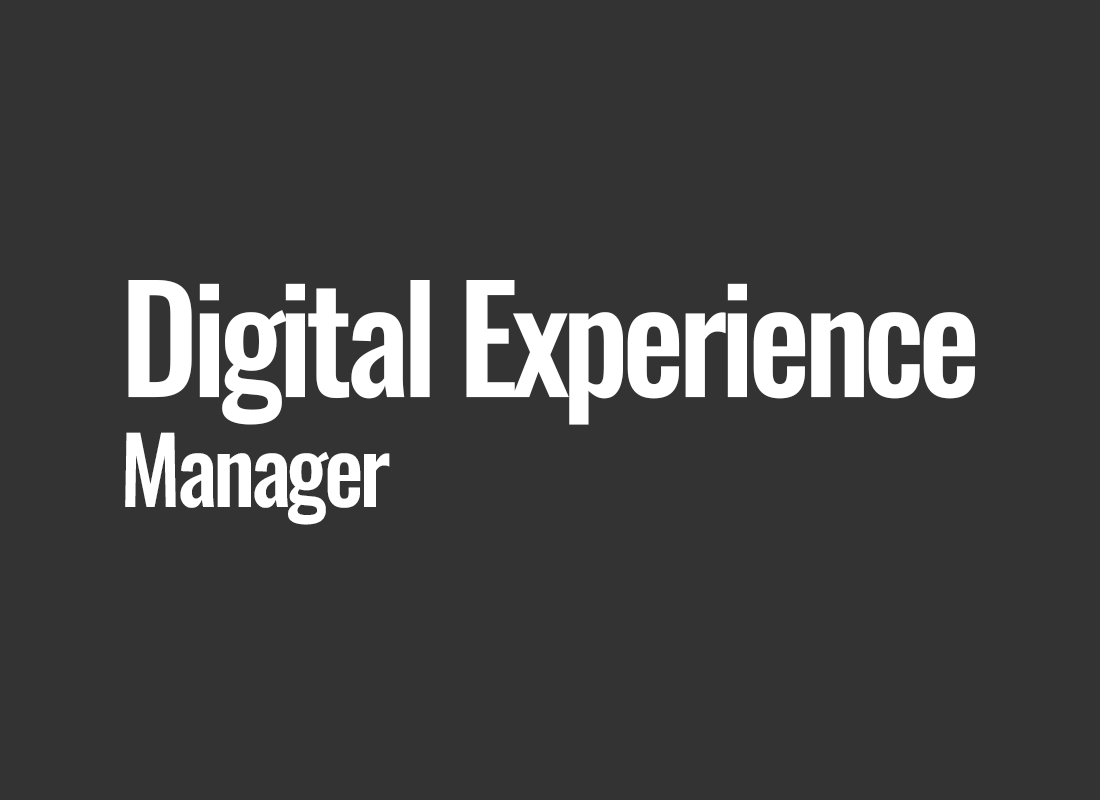Digital Experience Manager
In today's digital world, where online interactions play a crucial role in the relationships between businesses and their customers, the concept of a Digital Experience Manager takes on special significance. The Digital Experience Manager is not just a specialist in user interface design or data analysis but, above all, an architect of unforgettable online experiences. This role is an integral part of dynamic industries such as UX, e-commerce, marketing, and IT, playing a key role in shaping the digital environment of businesses.
User Interaction Optimization
A Digital Experience Manager is not merely a guardian of website or application aesthetics but primarily a strategic thinker who understands that every user interaction is an opportunity to build relationships. Optimizing interactions is a key area where the Digital Experience Manager operates, utilizing data analysis, UX tools, and user feedback for continuous improvement of user paths. They ensure that every interaction with the platform is smooth, intuitive, and satisfying.
Designing and Implementing Enhancements
In creating unforgettable experiences, the ability to design innovative solutions plays a crucial role. The Digital Experience Manager not only identifies areas for improvement but also leads the design process, collaborating with design and development teams. Creativity combines with data analytics to create a digital environment that not only meets expectations but exceeds them.
Personalization and Targeting
Personalization is a key differentiator, and the Digital Experience Manager is the architect of personalized experiences. They use user data to deliver content and features tailored to individual needs. Managing marketing campaigns based on precise analysis of demographics, preferences, and user behaviors becomes an art aimed not only at attracting attention but also at building lasting relationships.
Digital Project Management
The Digital Experience Manager serves as a leader of digital projects, coordinating the work of various teams. Project management involves not only maintaining schedules and budgets but also effectively guiding creative processes. They collaborate with developers, designers, and the marketing department to ensure the consistency of actions and the achievement of business goals.
Testing and Conversion Optimization
The Digital Experience Manager acts as a data detective, using A/B testing and conversion rate analysis to identify areas for improvement. They ensure that every element of the platform is optimized for conversion, implementing effective corrections. Their focus is not only on the purchasing process but also on every point of contact that can influence user decisions.
Tracking Trends and Innovations
The Digital Experience Manager is a continuously learning specialist who tracks the latest trends and innovations in UX, e-commerce, and technology. Knowledge of new tools, methodologies, and strategies puts them in a leadership position, ready to adapt the company's strategies to changing market realities. They act as a bridge between the world of technology and user expectations.
Tracking Results and Reporting
In addition to creating innovative solutions, the Digital Experience Manager is responsible for monitoring the results of actions. They regularly analyze data on user interactions, conversion rates, and campaign effectiveness. Reports are created to understand what works well and what needs improvement, enabling informed business decisions.
Collaboration with Teams
Collaboration is a key element of the Digital Experience Manager's success. They must not only efficiently manage projects but also build communication bridges between different departments. Collaboration with project, marketing, sales, and technical teams is crucial for maintaining consistency in actions and implementing the company's strategy.
Shaping Organizational Culture
The Digital Experience Manager also influences organizational culture, especially in companies where digital experiences are a central element of the strategy. They co-create values related to the UX area, promote innovation, and openness to user feedback. They shape an atmosphere where every employee understands how their daily work affects customer experiences.
Summary
The Digital Experience Manager is not just a specialist in UX or digital marketing; they are creators of experiences, architects of interactions, and leaders of digital projects. Their role is becoming increasingly crucial as companies realize that competitiveness in the digital era is not just about having a modern website or application but about the ability to create unforgettable experiences that translate into customer loyalty and business success. For those who aspire not only to lead changes but also to shape them, the position of Digital Experience Manager becomes a fascinating career path, full of challenges and unlimited development opportunities.




